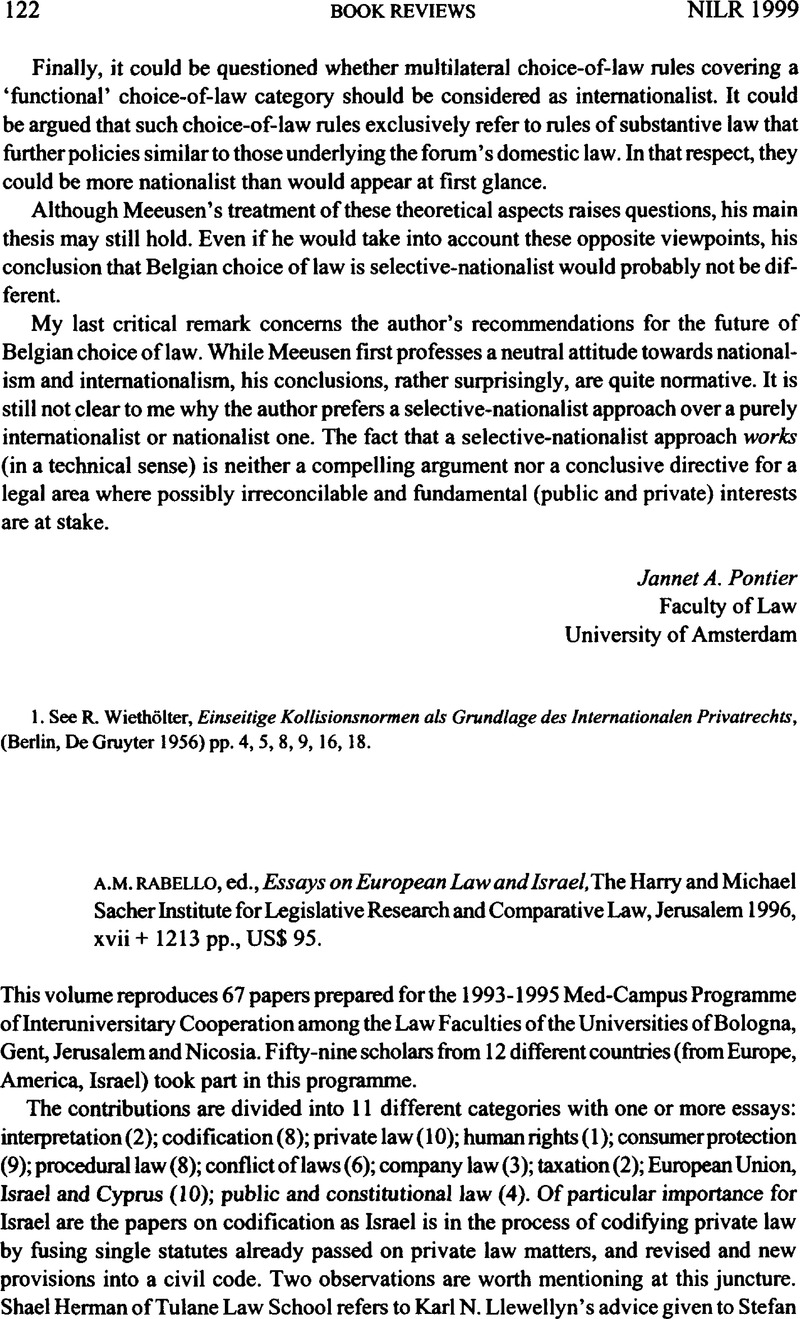No CrossRef data available.
Published online by Cambridge University Press: 21 May 2009

1. St, Riesenfeld, ‘The Impact of German Legal Ideas and Institutions on Legal Thought and Institutions in the United States’, in Reimann, M., ed., The Reception of Continental Ideas in the Common Law World 1820–1920 (Berlin, Duncker und Humblot 1993) pp. 89–97 at p. 91Google Scholar; idem, ‘Reminiscences of Karl Llewellyn’, in Drobnig, U. and Rehbinder, M., eds., Rechtsrealismus, multikulturelle Gesellschaft und Handelsrecht. Karl N. Llewellyn und seine Bedeutung heute (Berlin, Duncker und Humblot 1994) pp. 11–16 at p. 14.Google Scholar
2. Hermann Heimpel (1901–1988) was Director of the Max-Planck-Institute for History in Göttingen.
3. Calabresi, G., A Common Law for the Age of Statutes (Cambridge, Mass., Harvard University Press 1982) p. 1.Google Scholar
4. Radbruch, G., Rechtsphilosophie, 5th edn. (Stuttgart, K.F. Koehler 1956) p. 211.Google Scholar
5. Cf., e.g., Markesinis, B.S., The German Law of Obligations, Vol. II: The Law of Torts. A Comparative Introduction, 3rd edn. (Oxford, Clarendon Press 1997).Google Scholar
6. Cf., White v. Jones [1995] 2 WLR 187 (HL).
7. Jhering, R. von, Geist des römischen Rechts auf den verschiedenen Stufen seiner Entwicklung, Vol. 1, 6th/7th edn. (Leipzig, Breitkopf und Härtel 1924) pp. 8 et seq.: ‘Niemand wird von der Ferne holen, was er daheim ebensogut oder besser hat, aber nur ein Narr wird die Chinarinde aus dem Grunde zurückweisen, weil sie nicht auf seinem Krautacker gewachsen ist.’Google Scholar